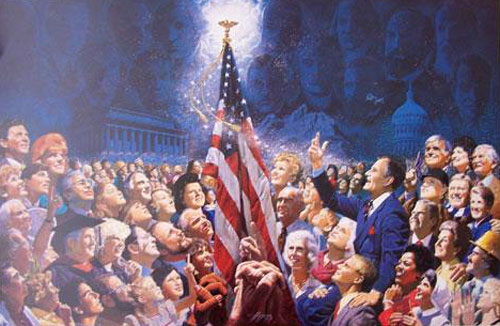What he lacked, as he more or less admitted, was “the vision thing”. Ideologically, he was flexible: moderate sometimes (indeed, in one Texas race, left of the Democrat), while at others he would traipse round pandering to conservatives, as George Will cruelly put it, with a thin tinny “arf”, like a lap-dog. On domestic policy, as president, he inclined to the hard right (prayer in schools, gun rights, anti-abortion), while also loosening immigration policy and expanding the rights of the disabled. Wearing his mild Episcopalian hat, he mentioned a thousand points of light, a kinder, gentler America, and a new breeze blowing away the leaves of an old tree. It was all as vague as it was all deeply hoped for.

His forte, and first love, was foreign policy. He had been ambassador to the UN for Nixon, an envoy to China for Gerald Ford (he and Barbara riding round delightedly on bicycles) and head of the CIA, besides, as vice-president, a follower-of-the-hearse at dozens of state funerals. Instinctively, he thought in terms of global power games; fortuitously, his time as president coincided with the end of the cold war, a heady and fascinating moment. With Mikhail Gorbachev he struck up an easy working friendship, and in 1991, in the wake of the Gulf war, he even had a moment of comprehensive vision: a new world order, based not on force but on the rule of law, which America would strongly lead.
译文由可可原创,仅供学习交流使用,未经许可请勿转载。












